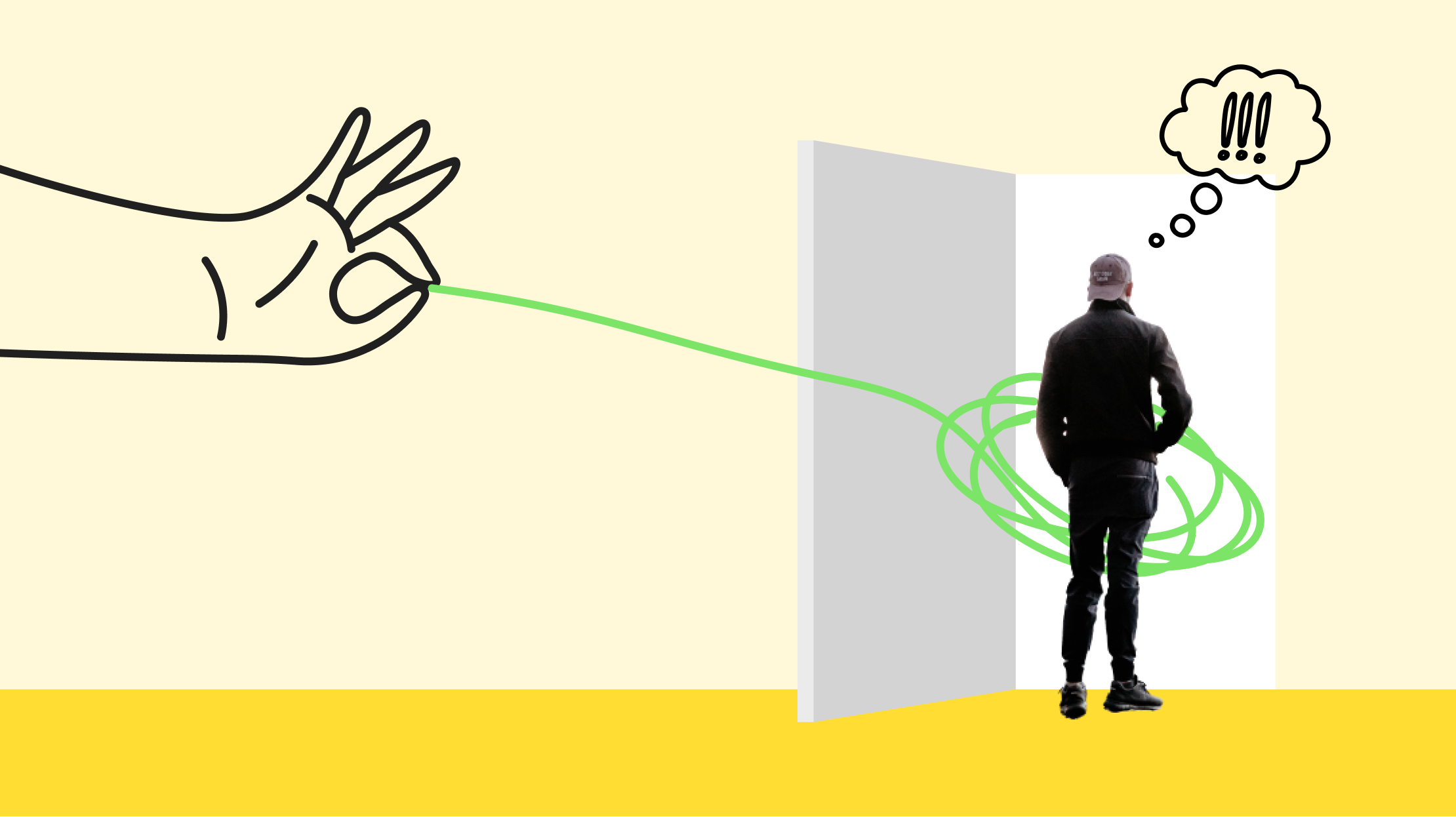By Jostle
7 min read

Imagine a workplace where employees feel valued, motivated, and empowered to reach new heights. A place where appreciation permeates the atmosphere and team members collaborate with enthusiasm.
This scenario isn't just a pipe dream; it's attainable through the power of employee recognition.
In this guide, we'll dissect the concept of employee recognition, examine its significance, and explore strategies for cultivating a culture that champions appreciate.
Employee recognition is the intentional, consistent act of acknowledging and valuing employees' contributions, efforts, and achievements.
It transcends material rewards or financial incentives, encompassing a spectrum of actions such as verbal praise, written expressions of gratitude, public acknowledgments, and opportunities for growth or advancement.
By recognizing the myriad of ways employees can be appreciated, you'll be better poised to create a well-rounded recognition culture that resonates with your entire team.
When employees feel valued and acknowledged for their efforts, they are more likely to perform at their best, contribute to a healthy company culture, and remain loyal to your organization. Let's look at the impact recognition can have on engagement, retention, and overall culture.
When employees feel seen and appreciated, their engagement levels soar. Engaged employees are more likely to be invested in their work and demonstrate commitment to achieving organizational goals.
This heightened engagement often translates into improved performance, as employees who feel recognized are more motivated to excel in their roles. By prioritizing employee recognition, you can tap into the hidden potential of your team and drive the organization further than before.

Employee recognition has a direct impact on retention rates, as appreciated employees are more likely to feel satisfied in their roles and stay loyal to the company.
Consistent recognition also bolsters employee morale, helping to create a workplace where team members feel supported, valued, and motivated to give their best. By fostering a culture of appreciation, you can ensure that your organization not only attracts the best talent but retains it, which is just as important.
A strong company culture is the backbone of any thriving organization, and employee recognition plays a critical role in cultivating this. When employees feel valued, they are more likely to align themselves with the company's mission, vision, and core values.
This, in turn, fosters a sense of belonging and unity among team members, leading to a more positive and collaborative work environment. As appreciation becomes ingrained in your company culture, you'll find that your organization becomes a magnet for top talent, further solidifying your path to success.
Creating a thriving employee recognition culture requires a solid foundation. By incorporating essential elements into your program, you can ensure it resonates with your workforce and drives meaningful results.
When creating an employee recognition program, prioritize consistency, fairness, personalization, timeliness, and diversity. Ensure that recognition efforts are genuine and tailored to individual preferences. Frequently evaluate and adjust your program based on feedback and changing needs; a successful recognition program should remain flexible and adapt to your organization's unique culture and employee preferences.
One critical aspect of a successful recognition program is its alignment with your organization's values and goals.
By tying recognition to these core principles, you can reinforce their importance, instilling a sense of purpose and direction in your employees. This ensures that recognition initiatives resonate deeply with your team, making them feel intrinsically connected to the organization's broader mission.
A well-rounded recognition program strikes a balance between formal and informal methods. Formal recognition includes structured initiatives like awards ceremonies, performance bonuses, or promotions.
Informal recognition can be as simple as providing verbal praise, writing a thank you message, or offering public acknowledgment in meetings. Encourage team leaders and peers to recognize each other for their efforts, and consider implementing regular check-ins or feedback sessions to maintain a strong culture of recognition.
For recognition to have a lasting impact, it must be genuine and meaningful. This means taking the time to understand each employee's unique strengths, achievements, and contributions, and acknowledging them in a way that truly resonates.
By tailoring your recognition efforts to individual preferences and offering personalized expressions of appreciation, you can ensure maximum impact and foster lasting connections with your team.
While top-down recognition is vital, fostering a culture of peer-to-peer appreciation can be equally powerful. Encouraging employees to recognize each other's achievements can lead to stronger working relationships, enhanced collaboration, and a more supportive work environment.
To create a successful peer recognition program, provide clear guidelines and criteria, offer simple and accessible ways for employees to give and receive recognition, and create a platform for public acknowledgment of achievements. Encourage a culture of recognition by providing ongoing support, celebrating successes, and making recognition a regular part of team discussions.
Technology can play a significant role in bolstering your employee recognition program. Recognition platforms offer a centralized hub for acknowledging achievements, tracking progress, and celebrating milestones.
By leveraging these tools, you can streamline your recognition efforts, ensuring that no one goes unnoticed, and enhance employee engagement by making appreciation visible and accessible to all. Embrace the power of technology to elevate your recognition program and set your organization on the path to success.
Creating a meaningful employee recognition culture involves embracing innovative ideas and strategies that resonate with your workforce. Some effective employee recognition ideas include personalized thank you notes, highlighting achievements in team meetings, offering gift cards or vouchers, providing additional time off, creating internal awards, organizing team lunch celebrations, and implementing peer recognition programs.
Remember, the best employee recognition ideas vary depending on the organization's culture and employee preferences.
Recognizing employee milestones, work anniversaries, and long-term commitment is an essential aspect of a comprehensive recognition program. By celebrating these significant achievements, you can demonstrate your appreciation for the employee's dedication and loyalty, reinforcing their sense of belonging within the organization.
To honor these milestones, consider hosting special events, such as anniversary lunches or team outings, where employees can come together to celebrate their colleagues' achievements. Alternatively, you could present personalized gifts or certificates to commemorate the occasion, serving as a lasting reminder of the employee's valued contributions.
Incorporating milestones and work anniversaries into your employee recognition culture not only strengthens the bond between employees and the organization but also fosters a sense of camaraderie and teamwork among your staff, contributing to a more supportive and engaged work environment.
Traditional awards like "Employee of the Month" can still hold value, but why not think outside the box? Consider creating awards that align with your company values or celebrate specific achievements, such as teamwork, innovation, or customer service excellence. A diverse range of award categories allows every employee an opportunity to be recognized for their unique contributions.
Public recognition can be a powerful motivator, instilling a sense of pride in employees and inspiring others to strive for similar accolades. Acknowledge achievements during team meetings, company-wide announcements, or on internal social media platforms. This visible appreciation not only boosts the morale of the recognized employee but also encourages others to emulate their success.
While monetary rewards can be appealing, it's important to remember that non-monetary incentives can be equally impactful. Consider offering a range of rewards, such as professional development opportunities, flexible work arrangements, or extra time off. Tailoring your rewards ato the diverse needs and preferences of your team allows you to create a recognition program that speaks to everyone.
In today's increasingly remote work landscape, it's crucial to adapt your recognition program to suit the needs of virtual employees. Utilize digital tools like video conferences, instant messaging, or virtual team-building activities to maintain a culture of appreciation across geographical boundaries. By embracing technology and adapting your recognition strategies to the remote work environment, you can ensure that all team members feel valued and connected, no matter where they're located.
To ensure ongoing success, measure the impact of your employee recognition efforts and adapt strategies based on measurable outcomes. Monitor employee engagement metrics such as participation rates, satisfaction scores, and responses to internal surveys. These indicators provide valuable insights and help identify areas for improvement.
Examine key performance indicators (KPIs) and productivity metrics to determine if recognition efforts positively influence employee productivity. A correlation between recognition and improved performance signifies a successful program.
Regularly gather employee feedback through surveys, focus groups, or one-on-one conversations. Open communication offers a deeper understanding of what works, what doesn't, and how to enhance recognition strategies.
Armed with data and feedback, be prepared to adapt your recognition program to better serve your organization's needs. This might involve introducing new award categories, adjusting rewards systems, or implementing additional training for managers. Continual refinement ensures ongoing effectiveness and maintains a thriving, engaged workforce.
To create an inclusive recognition program, consider gathering input from team members, offering a variety of recognition methods, and regularly evaluating the effectiveness of your approach. As engagement looks different for everyone, it's important to be flexible; change your recognition methods to meet your employees' evolving needs and preferences.
While recognition plays a crucial role in boosting employee engagement, it's crucial to broaden our understanding of success in the workplace. Employee engagement is important, but it's not the whole story. To truly create a thriving work environment, organizations must address the various aspects that contribute to employee success.
When organizations concentrate on employee success, they create a more connected and supportive culture. This focus on success boosts productivity, joy, and overall connectedness within the organization. By addressing the diverse needs of employees, including engagement, enablement, and celebration, organizations can create a workplace that truly supports and nurtures its workforce.
So, while employee recognition is an important aspect of creating a positive work environment, it's only one part of a larger strategy. By addressing the full spectrum of employee achievement and prioritizing meaningful work, enablement, and celebration, organizations can build a culture that fosters success, satisfaction, and growth for all team members.
Read more by
Jostle
Jostle’s employee success platform is where everyone connects, communicates, and celebrates at work. Find out more at jostle.me. © 2009–2025 Jostle Corporation. All rights reserved.